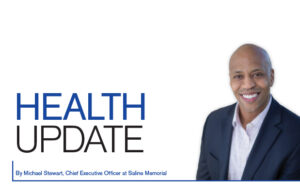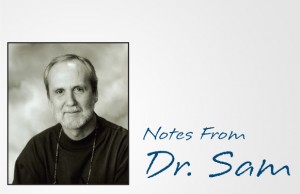Life Goes On…

In 1982, one of America’s most famous poets of the time told a now-beloved story about a boy named Jack and his high school sweetheart. The kids were not that different from other sixteen-year-olds who, like them, grew up in America’s heartland. They spent many summer nights hanging out at the local Tastee Freez talking about what they were going to do next. Often those discussions were about what they might do later that night. But sometimes the discussions were more forward-thinking, dreaming about how their lives might look in the future.
At the time, the poet was known to the public as John Cougar, but we now know him as John Mellencamp. The high school sweetheart in his story is Diane. Most would agree that John Mellencamp made Jack and Diane one of the most popular couples in music.
When Jack and Diane allowed their thoughts to drift beyond their immediate plans and into what, to them, felt like the distant future, they became philosophical beyond their years. John conveyed two deep thoughts through his teenage messengers. First, he told us something most of us experienced first-hand many years ago but don’t want to think about: The world changes faster than we’d like to make kids into women and men.
People in their twenties and thirties see themselves in John’s message, remembering how quickly society forced them to grow up. Older people, further removed from their teenage years but with children of their own, probably receive John’s message differently. They see their babies in John’s song, growing up fast, desperately wishing life would slow down.
Second, John made the sobering observation that, when we grow up, life goes on long after the thrill of living is gone. That memorable line could mean very different things to different people, and you could go to a dark place pondering the thought. But it seems fair to say that one universal, more useful takeaway is that life does not always play out exactly as we might hope. Things aren’t always perfect, and more trips around the sun means more chances for things to go wrong.
Why am I, an estate planning attorney, writing about this? The message I would add, although less poetically, to John’s themes would be—do something about it to care for those you love. Now that we’ve been forced to grow up, we must do the things that grown-ups do. Think about the future realistically, realize things may go wrong, and make plans to protect the people who depend on you.
For those with young children, that plan should include a Last Will and Testament to name guardians who will be asked to care for those children in your absence. That plan should also include a method for looking out for the financial well-being of those children. A Living Trust is usually the best way to accomplish that. In a trust, parents can name their children as the beneficiaries of the estate but appoint someone else to manage the assets they leave behind to meet their children’s financial needs.
Another way to look out for those who depend on you is to take care of yourself. From an estate planning perspective, that means you must have power of attorney and healthcare documents in place before you need them to ensure that a trusted individual of your choice has the legal authority to speak for you, sign for you, and otherwise make decisions on your behalf in case your age or health prevents you from doing those things for yourself in the future.
This is important for people of all ages, but the need intensifies as we advance in years. It is not prudent to leave those you care about in a position where they must step in to provide assistance without giving them the legal documents needed to allow them to effectively do so.
Take care of yourself to take care of those you love. Get power of attorney and healthcare documents in place before the need arises. Care for those you leave behind by ensuring a cost-efficient, time-efficient, low-stress means for wrapping up your estate when you’re gone. Get moving in the right direction.









0 comments